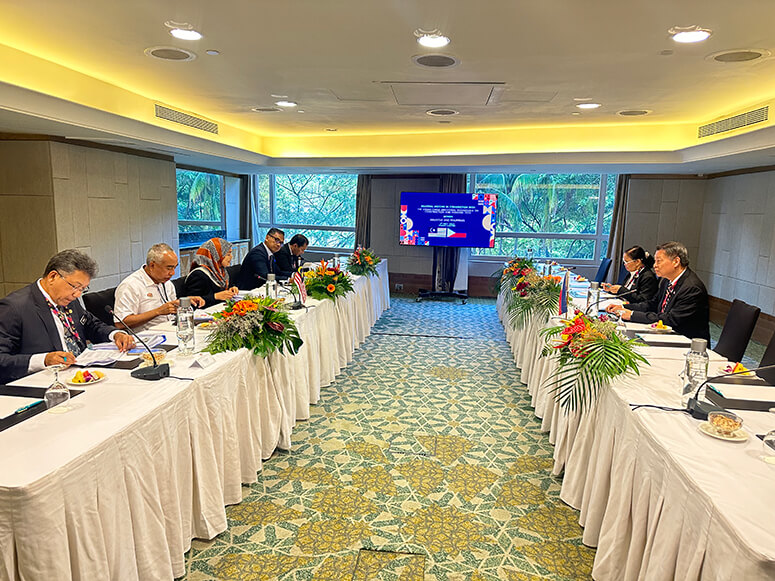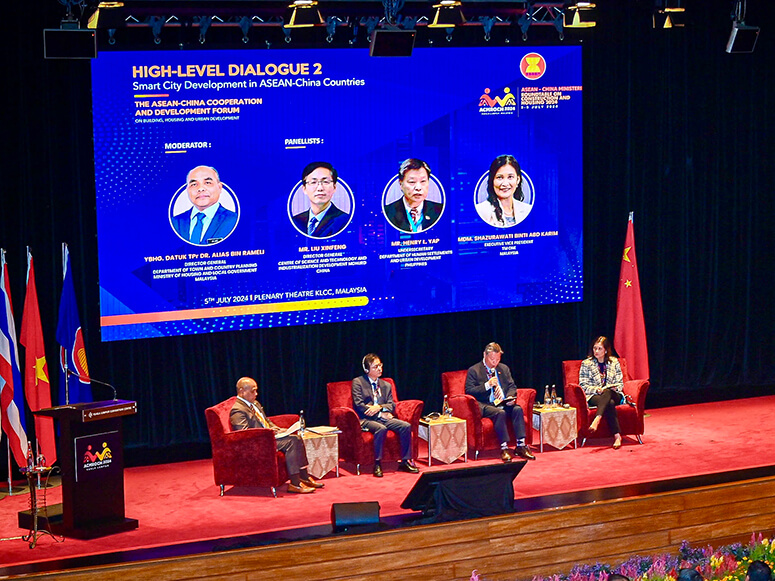Kuala Lumpur – Ministers and senior officials from ASEAN member states and secretariat, and China met in Malaysia for the 2nd ASEAN-China Ministerial Roundtable on Construction and Housing (ACMROCH) and reaffirmed their strategic partnership and cooperation framework on housing and urban development.
Undersecretary for Planning, International Cooperation and Institutional Partnerships Henry Yap, representing DHSUD Secretary Jose Rizalino L. Acuzar, headed the Philippine delegation and was joined by PHSS Director Maria Amoroso.
Graciously hosted by the Ministry of Housing and Local Government of Malaysia, this year’s theme of “Building Sustainable Futures: Deepening ASEAN-China Cooperation in Housing and Urban Development for Prosperity” follows on the Nanning Initiative held last year in Guangxi, China where the parties reiterated and expressed support to the UN 2030 Agenda for Sustainable Development (SDG) and the New Urban Agenda (NUA).

Formally opened by Malaysian Prime Minister Dato’ Seri Anwar Ibrahim, he called on member states to collectively work to develop Southeast Asia into a dynamic region and commit to cooperate as they attain both economic and social achievements.
ASEAN has a market size of about 2.3 Trillion US Dollars, with a population of over 600 million within the ten member countries – Brunei Darussalam, Cambodia, Indonesia, Lao PDR, Malaysia, Myanmar, Philippines, Singapore, Thailand and Viet Nam.

This year’s ministerial roundtable sought to promote closer high-level collaboration, provide an environment for discussion, knowledge exchange and dialogues addressing construction, housing and urban development challenges and opportunities. A Kuala Lumpur Communique 2024, referred to as the KL Consensus, was passed and focused on three key aspects of building sustainable futures, namely: (1) strengthen the framework for cooperation in housing and urban development; (2) advance technology, innovation and green construction for sustainability and efficiency; and (3) develop climate-resilient cities by accelerating local and regional climate actions.

Identified priority areas for actions and collaboration include sustainable construction practices that will contribute to environmental conservation and reduce carbon emissions; scale up of efforts and investments in quality affordable housing solutions; recognize the potential of technology in driving innovation to accelerate sustainable urban development agenda; commit to sustainable and innovative practices; accelerate efforts towards SDG implementation and adoption of NUA; foster multi-level climate governance; and support the promotion of comprehensive integrated urban planning.
In the Country Statement, Undersecretary Yap conveyed the commitment of the Philippines to play a significant role in the region and help turn the shared vision of a prosperous future into reality. He also disclosed the steps taken by Government such as the adaption of the flagship Pambansang Pabahay para sa Pilipino (4PH) Program, the Resilient and Green Human Settlements Framework (RGHSF) and harnessing the power of digital technology through the PlanSmart for Sustainable Human Settlements Program that will automate local land use planning, provide more accurate data on climate and disaster-related hazards and risks, and fast track the preparation of relevant, risk-informed and evidence-based local plans.
In conjunction with the Ministerial Roundtable Meeting, bilateral meetings were also held between the host Malaysia with ASEAN member states and China.
Select ministers and officials also participated in two high-level dialogues during the ASEAN-China Cooperation and Development Forum, with the Philippines being one of the discussants in “Smart City Development in ASEAN-China Cities” topic. Highlighted in the dialogue was the use of digital technologies as well as data and information to transform our cities to Smart Cities, a key priority as envisioned in Ambisyon 2040 and eight-point socio-economic agenda of the present administration.
